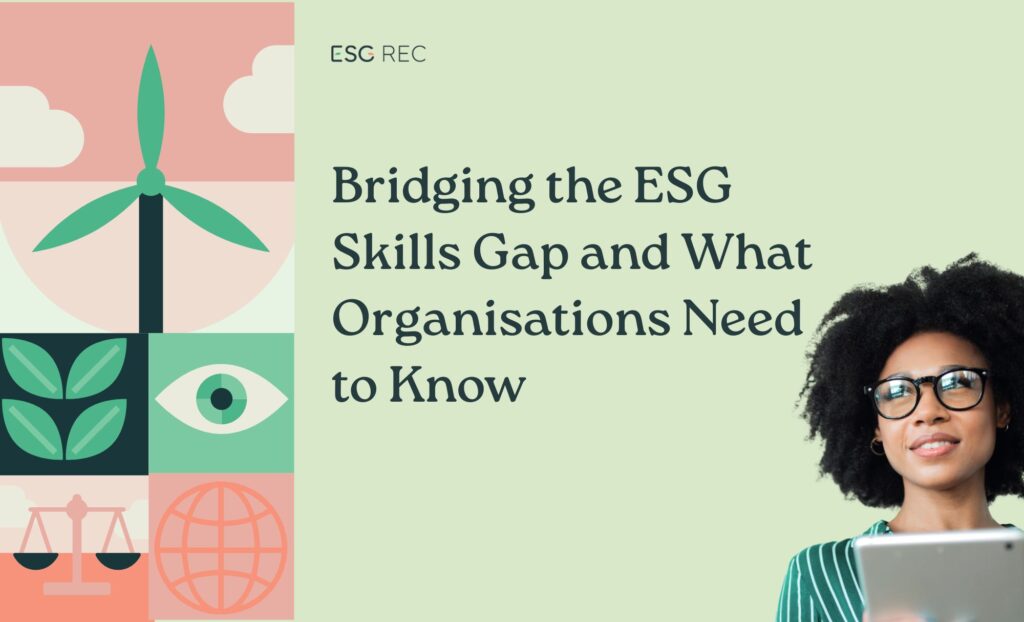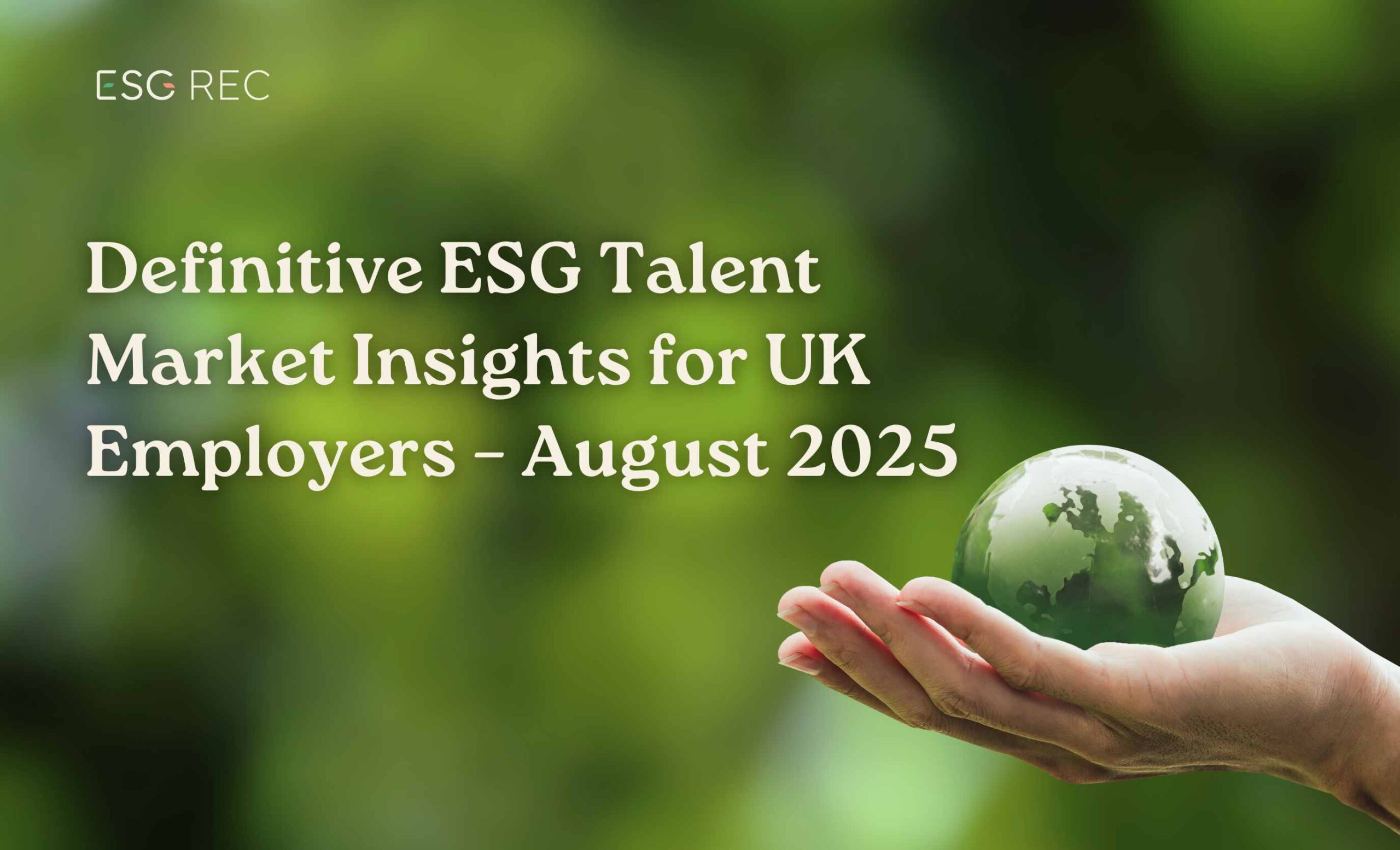
The ESG skills gap UK is becoming an increasingly important issue for businesses across all sectors. While green jobs are often highlighted as a growth area, many organisations are finding it difficult to recruit professionals with the right combination of sustainability expertise, technical skills, and practical experience. This shortage affects everything from carbon reporting and climate risk management to diversity and inclusion initiatives, making it more challenging for UK companies to meet ESG targets and comply with evolving regulations.
Carbon and Climate Specialists in Short Supply
Roles such as carbon accountants, energy managers, and climate risk analysts are among the hardest to fill. With reporting frameworks including ISSB, CSRD, and TCFD now in effect, companies need experts who can measure, interpret, and disclose emissions data accurately. The pool of candidates with practical experience is limited, with many already employed in high-demand sectors like consultancy or finance.
ESG Reporting and Data Challenges
The ESG skills gap UK is particularly pronounced in reporting and data management. Organisations require analysts who can manage multiple datasets, interpret complex sustainability metrics, and ensure alignment with international reporting standards. Professionals who can integrate ESG performance into financial systems or support cross-departmental reporting are especially in demand. Learn more about ESG reporting services for UK businesses at ESG REC.
Demand Beyond Environmental Roles
The skills gap is not confined to climate-focused roles. There is increasing demand for HR professionals who embed diversity, equity, and inclusion practices into organisational strategy. Supply chain managers tackling Scope 3 emissions, and finance teams integrating ESG into risk assessment and valuation, are also in short supply. These hybrid roles are particularly challenging to fill because they require both functional expertise and ESG-specific knowledge.
Regional Differences and Sector Variations
The ESG skills gap UK varies by region and sector. London and other major cities often have a higher concentration of ESG professionals, while smaller cities and regional businesses struggle to find local talent. Certain sectors, such as finance, consultancy, and energy, have been quicker to adopt ESG practices and face greater competition for qualified candidates. Meanwhile, industries like manufacturing and logistics are only beginning to build ESG capabilities, making recruitment slower and more difficult.
Bridging the Gap Through Training and Upskilling
Companies can address the ESG skills gap UK through internal training programmes, upskilling current employees, and partnerships with universities or professional bodies to create a pipeline of qualified professionals. Interim hires or consultants can also provide short-term expertise while organisations develop long-term talent strategies.
For individuals looking to succeed in ESG roles, gaining relevant certifications, hands-on project experience, and technical skills is essential. Upskilling in areas such as carbon accounting, climate risk analysis, and ESG reporting can help candidates stand out in a competitive UK market. Learn more about sustainable supply chain strategies at ESG REC Supply Chain and diversity & inclusion initiatives at ESG REC D&I.
The Talent Pool Reality
Although the number of ESG job titles in the UK continues to rise, the proportion of professionals with in-demand certifications or hands-on experience remains limited. Many candidates are passionate about sustainability but lack the technical depth or sector-specific knowledge that employers require. Structured training pathways, mentoring, and targeted recruitment campaigns can help bridge this gap.
Conclusion
The ESG skills gap UK is a present and pressing challenge. Employers need a combination of internal training, interim support, and strategic hiring to ensure they have the talent required for 2025 and beyond. Professionals can enhance their career prospects by developing technical ESG skills, gaining practical experience, and obtaining relevant certifications. By addressing this gap, UK businesses can build a more resilient, sustainable workforce ready to meet evolving environmental, social, and governance demands.








